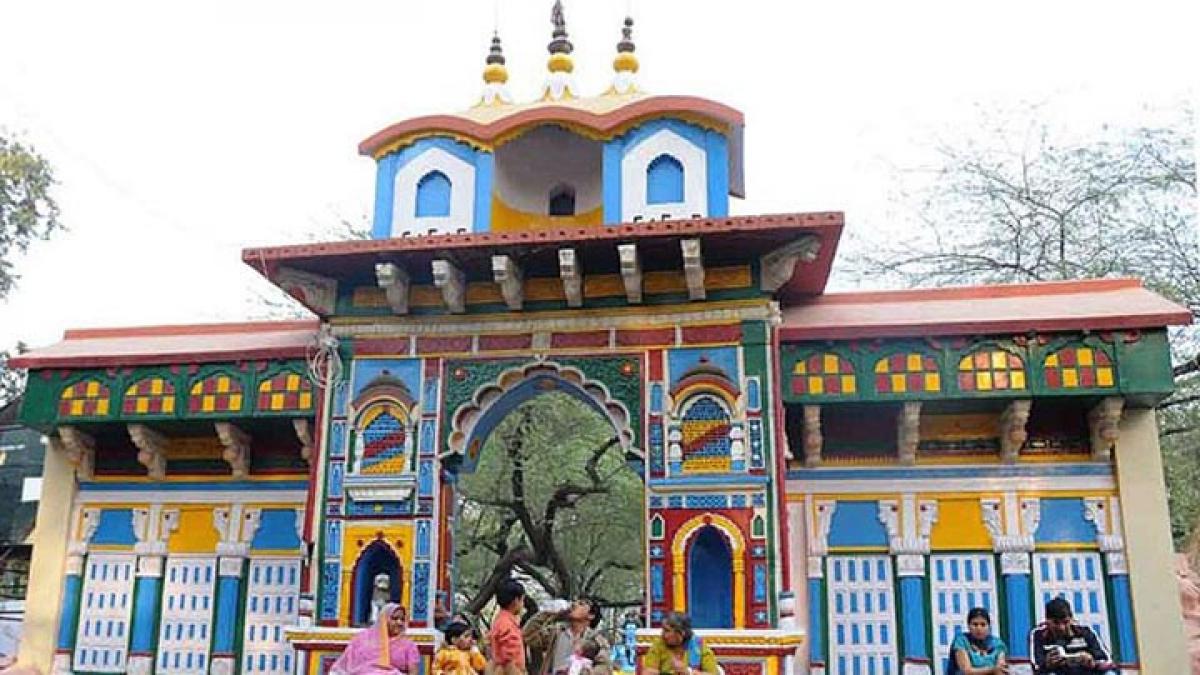Live
- Govt plans to establish offshore Johns Hopkins University Campus in India
- Goa Aces clinch Indian Racing League title
- Study finds how hormone therapy can reshape the skeleton
- High-street fashion players looking at India for manufacturing: Report
- Shreyas Iyer to lead Mumbai as Prithvi Shaw returns for Syed Mushtaq Ali Trophy
- 'Failed to resolve crisis': NPP withdraws support from BJP govt in Manipur
- Chennai: Actress Kasturi Remanded in Custody Until 29th of This Month
- Aaqib Javed likely to become Pakistan's new white-ball head coach
- BJP panel to draft poll charge sheet against AAP govt in Delhi
- Allu Arjun Thanks Fans in Patna, Teases 'Pushpa 2' Release
Just In

On the other hand, on behalf of the respondents it was contended that the State government had earlier in 1992 attempted to acquire the same land but had dropped the acquisition proceedings and as such it cannot be said that the land in question is genuinely required for any public purpose.
In a recent judgment delivered on January 19 involving the famous Surajkund in Haryana where many a political conclaves have been held in the past, the apex court has finally thwarted the attempt to privatise the said project by ruling that “personal benefit must give way to public interest and the doctrine of legitimate expectation cannot be invoked which would block public interest for private interest.”
Delivering the judgment in Civil Appeal Nos. 354 and 355 of 2016 Justice Prafulla C Pant speaking for himself and Justice Ranjan Gogoi, set aside the High Court order that annulled the land acquisition and allowed the appeals filed by the State of Haryana against M/s Eros City Developers Pvt. Ltd and others. The brief facts of the case may be summarised as follows: The state government acquired some 172 kanals 19 marlas of land situated in village Lakharpur, Tehsil Ballabgarh in District Faridabad from their owners by paying compensation.
The subject land was stated to have been acquired for the purpose of expansion and systematic development of Surajkund Tourist Complex which included development of parking area adjacent to the said site. It is significant to note that earlier in 1992 an attempt was made to acquire the same land but the acquisition proceedings were dropped after the apex court passed orders in M C Mehta’s case restraining the constructions in the area. Subsequently, the respondents purchased the land and submitted a plan of hotel project to the local municipality for approval.
It was argued on behalf of the State government that there was need to develop Surajkund Tourist Complex by acquiring land adjoining to Surajkund Mela ground that hosts the event in every February regularly and has become of international fame. It was further argued that the order of the High Court quashing the land acquisition proceedings on the equity doctrines of promissory estoppels and legitimate expectation were wrongly applied in favour of the respondent.
On the other hand, on behalf of the respondents it was contended that the State government had earlier in 1992 attempted to acquire the same land but had dropped the acquisition proceedings and as such it cannot be said that the land in question is genuinely required for any public purpose. It was also argued that the contesting respondent had purchased the land in question in the year 1993 with the object to construct a hotel complex of international standard.
The respondent got the permission for change of land use and submitted the plan for sanction from the municipal corporation. It was further stated that the Public Works Department had also accorded permission for construction of approach road to the land and approval for the hotel project was obtained from the Director, Tourism, Government of Haryana. However, the answering respondent was prevented from raising construction due to the restraint order passed by the apex court in M C Mehta’s case. The said order was later modified wherein the municipal corporation and State government were directed to accept option plan – A with regard to hotel complex submitted by it.
It was also argued that there was malice on the part of the State government in acquiring the land in question. To this, the State government submitted that since the construction did not start within six months as per stipulation, the acquisition cannot be questioned.
Citing the case of AP Pollution Control Board II vs. M V Nayudu (Rtd) and others (2001) 2 SCC 62 wherein the apex court observed that there could be no “promissory estoppel” against the statue.
Quoting from its earlier judgment in Hira Tikkoo vs. Union Territory, Chandigarh and others (2004) 6 SCC 765 it said , “ In public law in certain situations, relief to the parties aggrieved by action or promises of public authorities can be granted on the doctrine of “legitimate expectation” but when grant of such relief is likely to harm larger public interest, the doctrine cannot be allowed to be pressed into service. We may usefully call in aid the legal maxim :Salus Populi est suprema lex :regard for the public welfare is the higher law.
This principle is based on the implied agreement of every member of society that his own individual welfare shall in cases of necessity yield to that of community. His property, liberty and life shall under certain circumstances be placed in jeopardy or even sacrificed for the public good.”

© 2024 Hyderabad Media House Limited/The Hans India. All rights reserved. Powered by hocalwire.com







